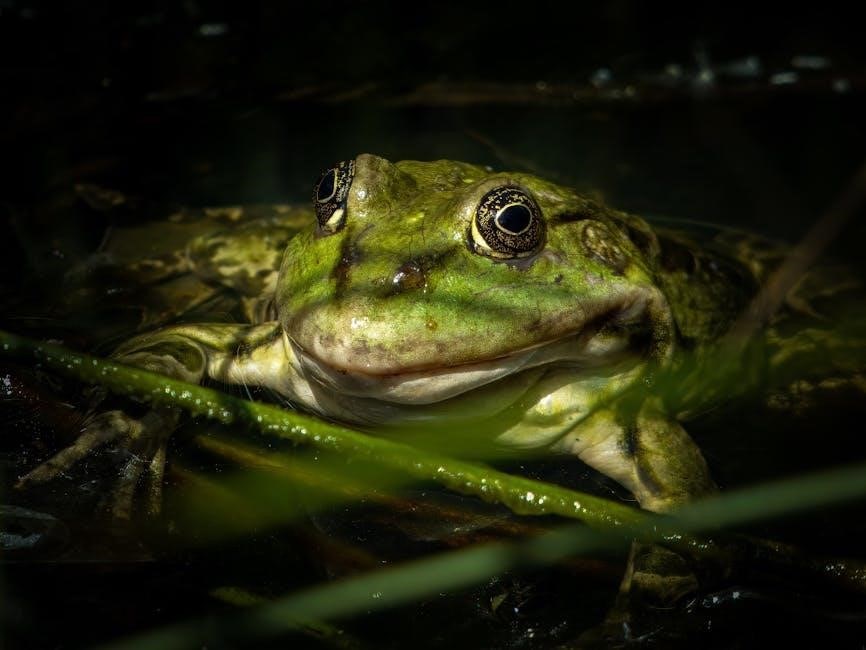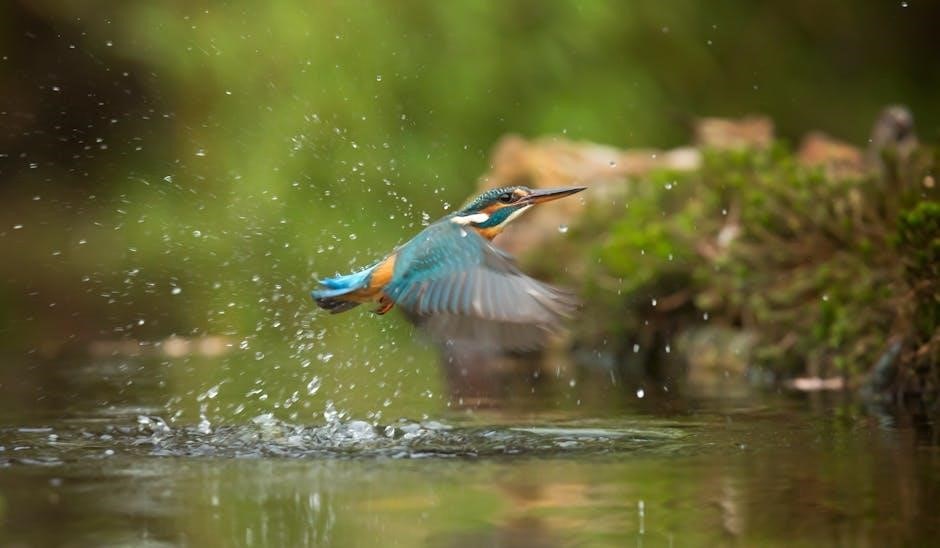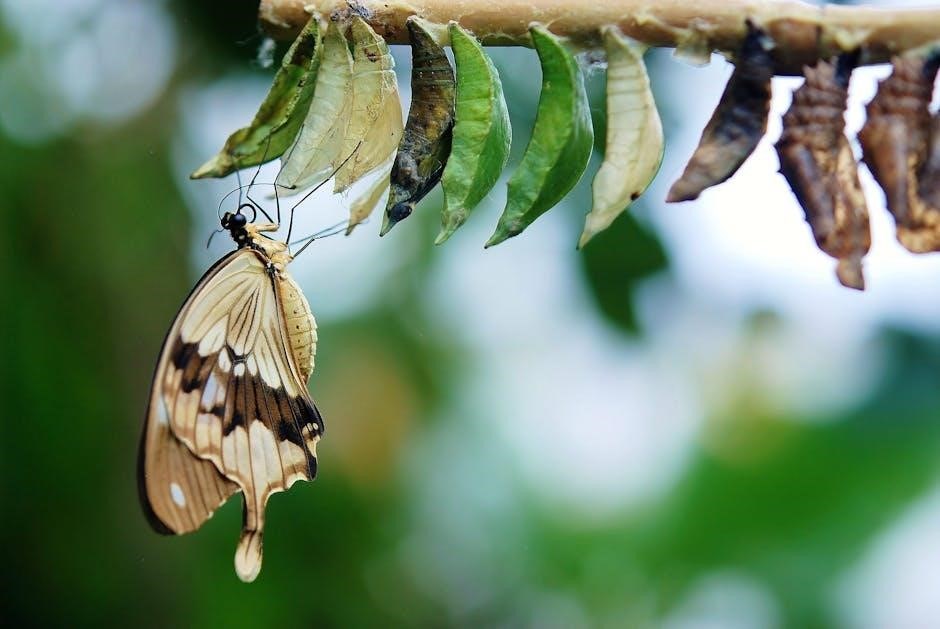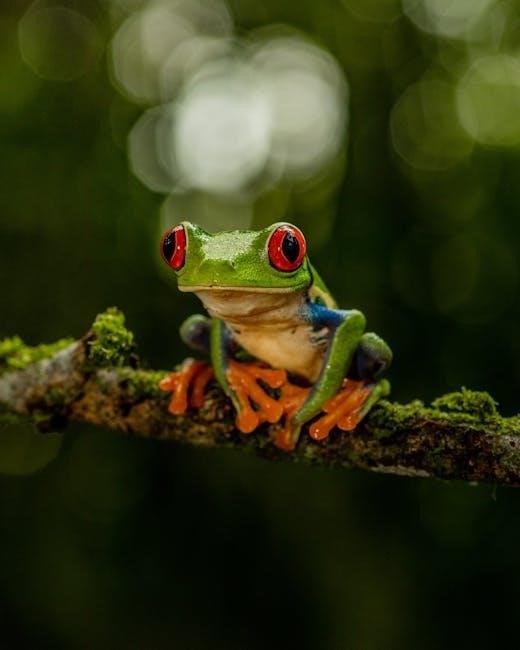Pursuing a degree in wildlife biology requires careful planning and completing specific academic prerequisites. These foundational courses ensure students gain essential knowledge and skills needed for success in the field. By understanding the necessary requirements, prospective students can prepare effectively for their academic and professional journey in wildlife biology.

Understanding the Importance of Prerequisites in Wildlife Biology
Prerequisites in wildlife biology are essential for building a strong academic foundation. They ensure students gain necessary knowledge in biology, chemistry, and mathematics, which are critical for advanced studies. These courses also prepare individuals for the rigors of fieldwork and research, enabling them to understand ecological principles and data analysis. Additionally, prerequisites like internships and volunteer work provide practical experience, enhancing career readiness. By fulfilling these requirements, students demonstrate their commitment and readiness to succeed in the demanding yet rewarding field of wildlife biology.
Core Academic Requirements for Wildlife Biology Programs
Core academic requirements include courses in biology, chemistry, mathematics, and ecology, providing foundational knowledge and skills essential for understanding wildlife ecosystems and conservation principles.
Biology and Chemistry Prerequisites
Biology and chemistry are fundamental to wildlife biology programs. Students typically need courses in introductory biology, genetics, and ecology, along with general and organic chemistry. These classes build a strong scientific foundation, enabling understanding of biological processes and chemical interactions in ecosystems. Additionally, labs often accompany these courses to provide hands-on experience with biological and chemical principles, essential for future fieldwork and research in wildlife biology. Completing these prerequisites ensures readiness for advanced topics in the program.
Mathematics and Statistics Requirements
Mathematics and statistics are crucial for analyzing data in wildlife biology. Courses in calculus, statistics, and sometimes mathematical modeling are typically required. These skills enable students to interpret ecological data, understand population dynamics, and conduct research effectively. Proficiency in statistical software is often emphasized for data analysis in field studies. Strong mathematical foundations are essential for evaluating and applying scientific methods in wildlife conservation and management. These requirements prepare students for the quantitative aspects of biological research and decision-making in the field.
Ecology and Environmental Science Prerequisites
Ecology and environmental science form the backbone of wildlife biology programs. Students are typically required to complete courses in basic ecology, which explores interactions between organisms and their environments. Environmental science courses focus on understanding ecosystems, conservation principles, and sustainability. These prerequisites equip students with the knowledge to analyze habitats, biodiversity, and human impacts on wildlife. Additionally, studies in these areas prepare students to address environmental challenges and develop strategies for preserving ecosystems, which are critical skills for future wildlife biologists.
Practical Experience and Additional Requirements
Practical experience is crucial for wildlife biology students, enhancing theoretical knowledge with hands-on skills. Internships, volunteer work, and field projects provide real-world exposure, preparing students for professional challenges.
Importance of Internships and Volunteer Work
Internships and volunteer work are vital for gaining hands-on experience in wildlife biology. These opportunities allow students to apply theoretical knowledge in real-world settings, such as field research, conservation projects, or wildlife management. They provide exposure to tools, techniques, and challenges faced by professionals, fostering practical skills like data collection, species identification, and habitat assessment. Additionally, internships and volunteer work help build professional networks and enhance resumes, making graduates more competitive in the job market. These experiences are often highlighted by colleges as essential for well-rounded preparation in wildlife biology.

Fieldwork and Research Experience
Fieldwork and research experience are critical components of a wildlife biology education. They provide students with the opportunity to engage in hands-on learning, directly observing and studying wildlife in their natural habitats. Through fieldwork, students gain practical skills in data collection, species monitoring, and ecological assessments. Research experiences further enhance analytical and problem-solving abilities, preparing students for advanced studies or careers in conservation and management. These experiences often involve collaboration with professionals and contribute to meaningful contributions to the field of wildlife biology.
Standardized Tests and Admission Requirements
Standardized tests like SAT/ACT are often required for undergraduate admissions, while GRE scores may be needed for graduate programs in wildlife biology. These scores help assess eligibility.
Role of SAT/ACT Scores in Admissions
SAT/ACT scores are critical for undergraduate admissions in wildlife biology programs. These tests assess academic readiness and help institutions evaluate applicants’ competitiveness. While some colleges may be test-optional, many require submission of SAT or ACT scores. High scores in math and science sections are particularly valued, as they reflect aptitude for rigorous coursework. Meeting or exceeding score benchmarks can significantly strengthen an application, though they are considered alongside other factors like GPA, coursework, and extracurricular activities.
GRE Requirements for Graduate Programs
GRE scores are often required for graduate programs in wildlife biology, though requirements vary by institution. Many programs expect competitive scores, particularly in the Quantitative section, due to the field’s analytical nature. Some universities may waive GRE requirements for applicants with strong academic records or relevant experience. Additionally, programs may consider GRE Subject Tests in Biology or related fields to assess specialized knowledge. Admissions committees evaluate GRE scores alongside transcripts, letters of recommendation, and personal statements to determine candidates’ potential for success in advanced studies.

Elective Courses and Specializations
Elective courses allow students to tailor their education, focusing on areas like wildlife conservation, fisheries, or ecology. Specializations provide deeper knowledge and practical skills for specific careers.
Wildlife Conservation and Management
Wildlife conservation and management courses focus on strategies to protect and sustainably manage wildlife populations and habitats. These electives emphasize ecological principles, habitat restoration, and human-wildlife conflict resolution. Students learn about conservation biology, wildlife policy, and the role of ethics in managing ecosystems. Practical skills in population monitoring and data analysis are also developed. This specialization prepares future wildlife biologists to address real-world challenges, such as climate change and biodiversity loss, ensuring the long-term survival of species and ecosystems. It aligns with career goals in environmental agencies, NGOs, and wildlife reserves.
Fisheries and Aquatic Sciences
Fisheries and aquatic sciences focus on the study of aquatic ecosystems, fish populations, and the sustainable management of marine and freshwater resources. This specialization explores the ecological, biological, and environmental factors affecting aquatic species. Courses often include aquatic ecology, fisheries management, and limnology. Students learn techniques for assessing fish populations, understanding water quality, and developing conservation strategies. This track prepares graduates for careers in fisheries management, aquaculture, and environmental agencies, addressing critical issues like overfishing and habitat degradation in aquatic ecosystems.

Practical Skills for Wildlife Biologists
Wildlife biologists require hands-on skills in species identification, data collection, and field equipment operation. Proficiency in tools like camera traps, GPS, and GIS enhances research accuracy and efficiency, ensuring effective conservation practices.
Fieldwork and Laboratory Experience
Fieldwork and laboratory experience are crucial for wildlife biology students, providing hands-on training in data collection, species identification, and ecological analysis. These experiences often involve conducting surveys, sampling habitats, and analyzing biological samples. Laboratories complement fieldwork by teaching students to use specialized equipment and techniques, such as genetic analysis or GIS mapping. Many colleges require or recommend participation in field and lab courses to ensure students develop practical skills essential for research and conservation careers in wildlife biology.
Communication and Data Analysis Skills
Effective communication and data analysis skills are vital for wildlife biologists to interpret and share research findings. Students learn to present data clearly through reports, presentations, and scientific papers. Proficiency in statistical software and data interpretation is emphasized, enabling accurate analysis of ecological trends. These skills also enhance collaboration with stakeholders, ensuring research is accessible and actionable for conservation efforts. Strong communication fosters understanding among diverse audiences, from scientists to the public, making it a cornerstone of successful wildlife biology careers.
Summarizing Key Prerequisites for Success in Wildlife Biology
The path to a successful career in wildlife biology begins with a strong academic foundation. Key prerequisites include courses in biology, chemistry, mathematics, and ecology, which provide essential scientific knowledge. Practical experiences, such as internships and volunteer work, are equally important, offering hands-on training and real-world insights. Additionally, developing skills in communication, data analysis, and fieldwork enhances readiness for the demands of the field. Meeting these requirements ensures students are well-prepared to excel in their studies and future professions in wildlife biology.